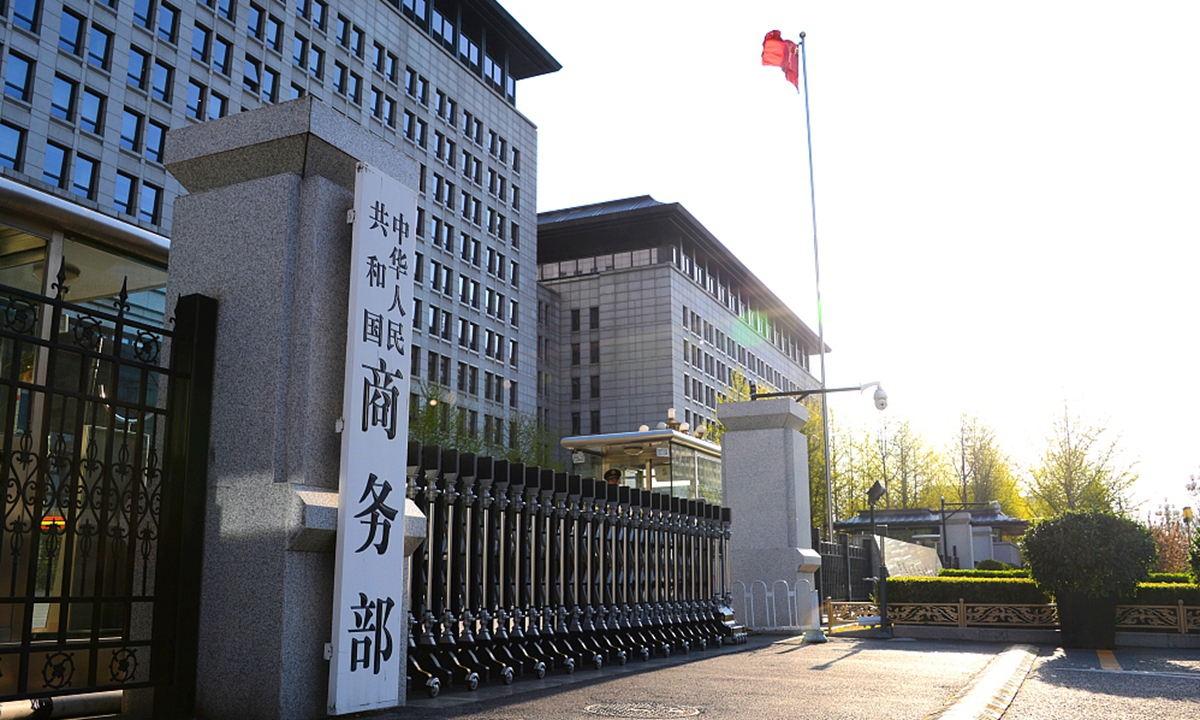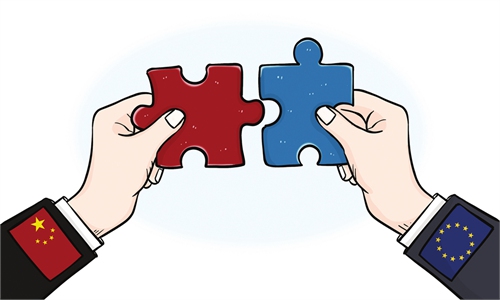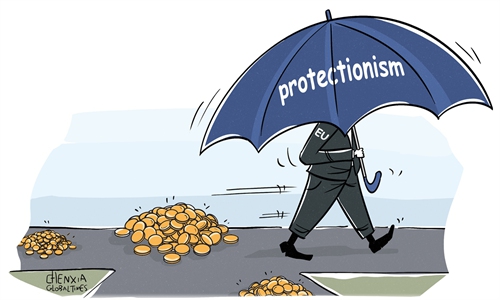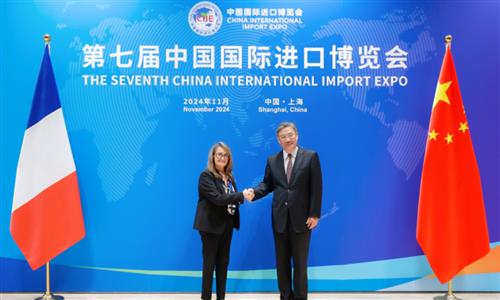China files lawsuit with WTO against EU's final EV tariff ruling; analysts urge bloc to show sincerity

The Ministry of Commerce Photo: VCG
China on Monday filed a lawsuit against the EU's final ruling on the anti-subsidy case against Chinese electric vehicles (EVs) at WTO under its dispute settlement mechanism in order to safeguard the interests of the development of the EV industry and the global cooperation on green transformation, a spokesperson of China's Ministry of Commerce (MOFCOM) said on Monday.
Previously, China filed a lawsuit with the WTO under its dispute settlement mechanism regarding the EU's preliminary anti-subsidy measures against China-made EVs. It is regrettable to see the European side announcing the final rulings to impose high countervailing duties on Chinese EVs despite numerous objections by relevant parties ranging from governments of EU member states, industries and the public, the spokesperson said.
"The EU's final ruling lacks a factual and legal basis, which violates WTO rules, and is an abuse of trade remedy measures. This is trade protectionism in the name of imposing countervailing duties." The MOFCOM urges the EU to reflect on its wrongdoings, immediately rectify its non-compliant practices, and jointly safeguard the stability of the global EV industry chain and supply chain, as well as overall China-EU economic and trade cooperation.
Despite the protectionism measures taken by the EU, experts and official authorities have urged the bloc to take a pragmatic approach instead of taking a one-sided view.
Rather than viewing issues during the deepening China-Europe relations through the lens of the comprehensive strategic partnership, the European Commission (EC) has a shortsighted approach and adopted excessive behavior, Zhao Junjie, senior research fellow at the Institute of European Studies at the Chinese Academy of Social Sciences, told the Global Times on Monday.
He noted that China and the EU have formed a community of intertwined interests after years of development. Against this backdrop, any tit-for-tat moves would cause significant damage to both sides, which is something neither party wants.
EU's decision to impose tariffs is a political behavior, which is not really based on the so-called industrial damage, Li Yong, a senior research fellow at the China Association of International Trade, told the Global Times on Monday.
Li noted that the enterprises that the EU claims to protect actually hope to strengthen cooperation with China.
MOFCOM said on Friday in a statement that the technical teams of China and the EU have immediately launched a new phase of consultations on price commitment following a discussion via video link on October 25 between Wang and European Commission Executive Vice President and Trade Commissioner Valdis Dombrovskis.
After intensive communication, the EU side indicated that it will be in China to continue consultations on the specific contents of the plan. "China welcomes this and hopes that the next phase of consultations will follow the principle of pragmatism and balance to reach a solution acceptable to both sides," per the MOFCOM statement.
Probe into EU goods complying with rules
MOFCOM on Monday said in a separate statement that China's Commerce Minister Wang Wentao has called on France to play an active role in pushing the EC to show sincerity and meet the Chinese side halfway for a solution regarding the EU's anti-subsidy probe into Chinese EVs. Technical teams from China and the EU are presently engaged in the second round of consultations.
Wang made the remarks when meeting with Sophie Primas, French Minister Delegate for Foreign Trade and French Nationals Abroad, attached to the Minister for Europe and Foreign Affairs, in Shanghai on Sunday ahead of the seventh China International Import Expo (CIIE).
Some 10 countries, including France, Italy, and Poland, supported imposing the tariffs on Chinese EVs of up to 35.3 percent, coming on top of existing duties of 10 percent, AFP reported. Five countries, including Germany and Hungary, voted against, while 12 abstained, including Spain and Sweden.
Wang reiterated China's commitment to addressing China-EU trade friction through dialogue and consultation - based on respect for facts and compliance with WTO rules.
Wang said that unlike the EU's anti-subsidy probe initiated without industry applications, China's trade remedy investigations targeting certain EU goods, such as brandy, pork and dairy products, were launched at the request of domestic industries in full compliance with WTO rules and Chinese laws and regulations.
He stressed that China would continue to handle these investigations in accordance with laws and regulations, safeguard the legal rights of enterprises from EU member states, including France, and base its rulings on evidence and facts.
China is ready to work with the European Commission to seek a proper solution in this respect, Wang added.
Primas said France is concerned about China's investigation into EU products such as brandy, stressing that France does not wish to see any escalation of the current trade tensions between the two parties, and Paris hopes that both can resolve trade differences through talks and consultations.
France remains one of the most important partners in deepening China-Europe relations, while the relationship between China and France has developed relatively smoothly with a diplomatic approach of strategic autonomy, said Zhao.
Huo Jianguo, a vice chairman of the China Society for World Trade Organization Studies in Beijing, noted that China and France may still figure out ways to ease the current situation amid the ongoing negotiations as both countries are trying to restore the negotiations. He highlighted the presence of France at the upcoming CIIE as an opportunity for further talks between China and France, showcasing that both sides have some sincerity.
Huo told the Global Times on Monday that the two sides could further strengthen communication to explore possibilities from the perspective of bilateral cooperation and strengthen the cooperation between China and the EU, also hoping France would play an active role in the long-term.
From an industrial perspective, enhancing cooperation with China in new-energy vehicles (NEVs) could help drive up the sector's development in the industrial chain, while local consumers are able to purchase NEVs at more affordable prices, Zhang Xiang, secretary-general of the International Intelligent Vehicle Engineering Association, told the Global Times.



